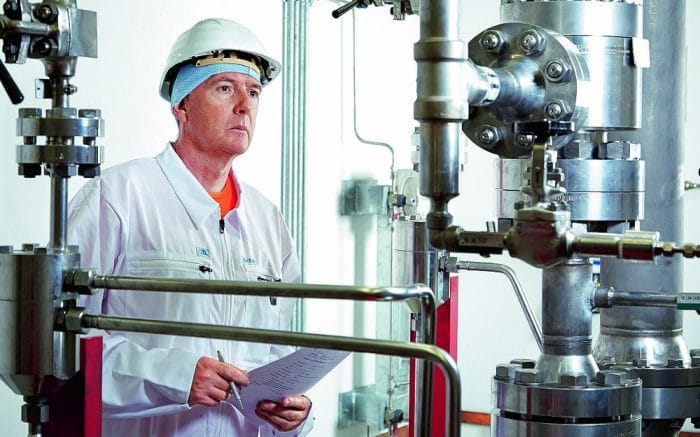Protecting people against radiation

«Every radiological protection official knows that the harmful effect of small doses of radiation is not exactly known at present. People must therefore be rigorously protected against radioactivity. We carry out regular measurements at nuclear power plants and in the surrounding area, also without prior announcement. If we do our job to the best of our knowledge we can remove unjustified fears.»
Roland Scheidegger, specialist for radiation biology
Radiological protection always begins by avoiding unnecessary exposure. One of the guiding principles behind radiological protection is therefore that the radiation burden on people should be kept as low as is reasonably achievable. This principle is expressed by the acronym ALARA (as low as reasonably achievable). The distance from a radioactive source must be as large as possible, the shielding as effective as possible and the length of stay as short as possible.
The ALARA principle is of crucial importance for the NPP personnel, i.e. people who work with or close to sources of radiation due their job. Among other things, ENSI specialists check whether the dose limits for employees working at nuclear installations are complied with and whether radiological protection and work planning are optimally organised.
The broad population must also be protected against radioactive radiation as well as possible. For this purpose ENSI maintains a measuring network for the automatic monitoring of radioactivity in the areas surrounding nuclear power plants (MADUK). The measuring probes of the MADUK system automatically show increases vis-à-vis natural doses and promptly alert ENSI’s emergency organisation. They register the consequences of operating disturbances and accidents without any time delay. In addition, ENSI models the consequences of airborne radioactive substances on the basis of current forecasts by MeteoSchweiz. In this way ENSI makes a contribution towards the protection of the population against radioactivity 24 hours a day.
ENSI’s experts for radiological protection are concerned with the following issues:
- Radiological industrial safety
- Environmental monitoring
- Personal dosimetry
- Radiation measurement technology
- Radiological consequences of abnormal occurrences
- Protection in emergency situations
ENSI runs an accredited laboratory for the measurement of radioactive substances. It checks the balance of liquid and gaseous radioactive discharge, approves the handling of sources of radiation and recognises personal dosimetry bodies in its area of supervision. Incidents of relevance for radiological protection are investigated and evaluated without delay, with measures being imposed if necessary. In the case of an abnormal occurrence ENSI’s radiological protection specialists with their technical expertise support the nationwide emergency organisation of the Confederation and the cantons.

